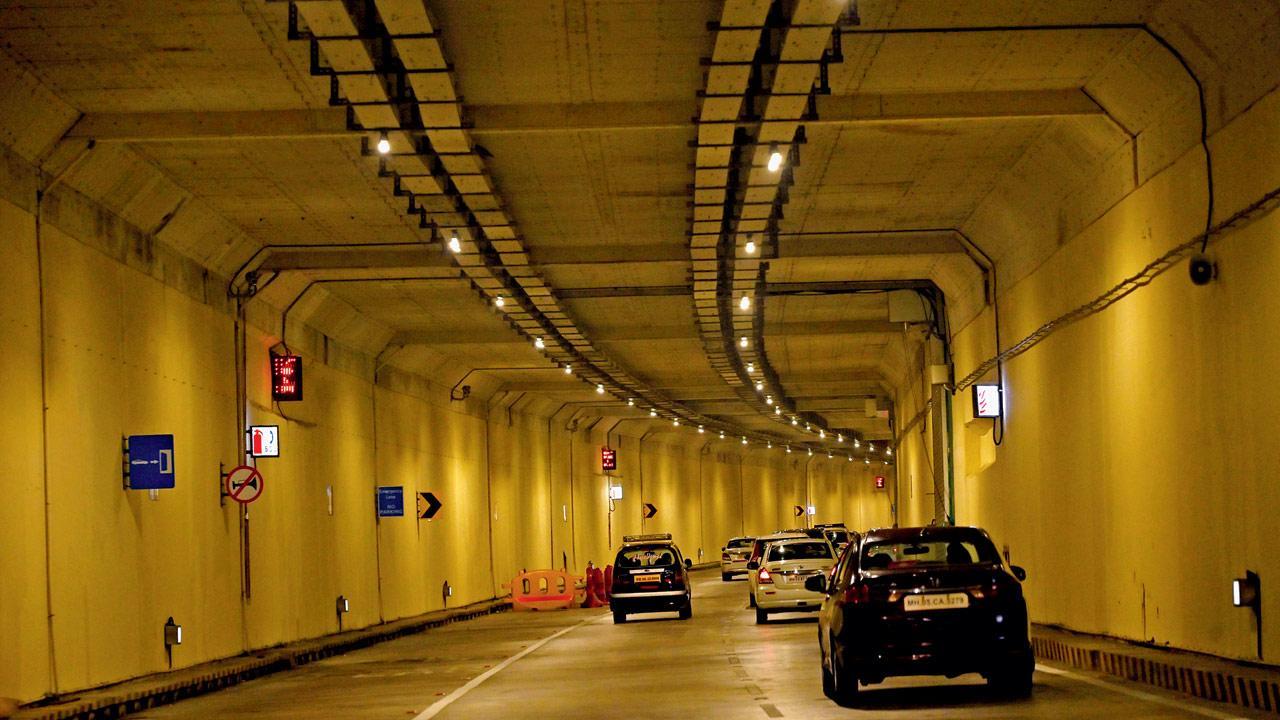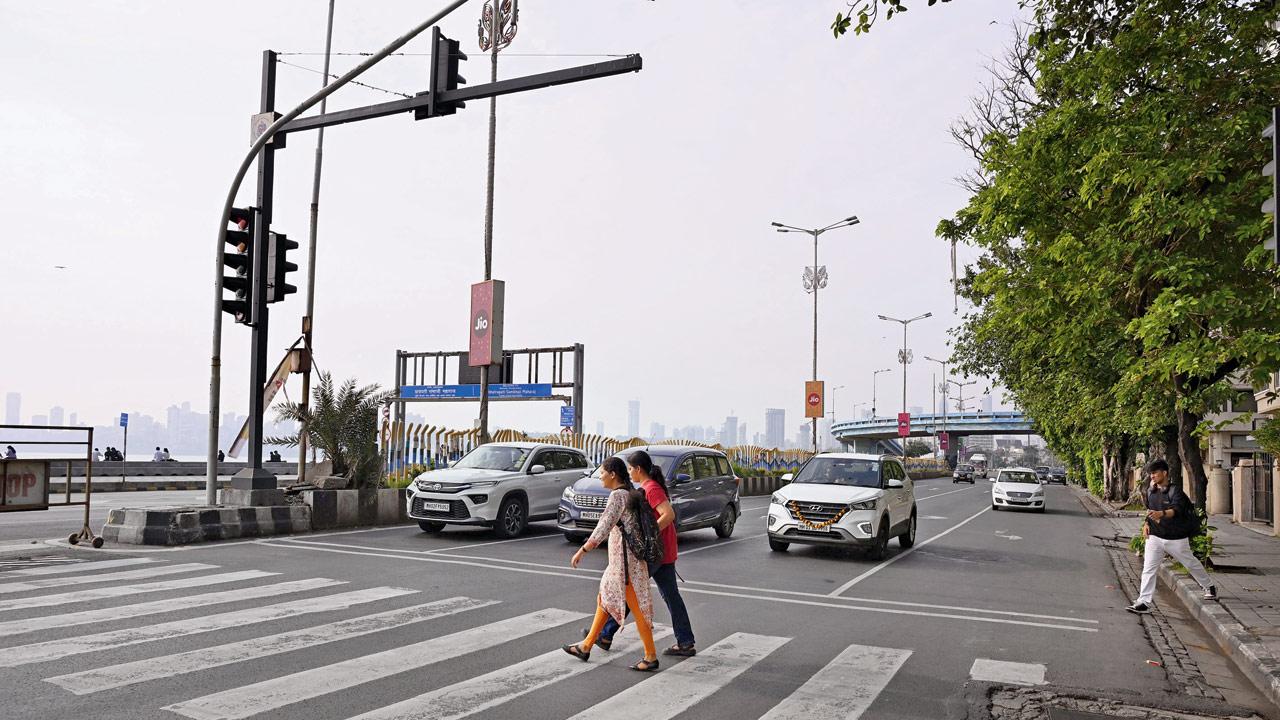Despite extending signal durations, traffic jams continue, especially at the Marine Drive exit

Cars travel a distance of 10 km within just 10 minutes before getting stuck at the Marine Drive signal
The frequent traffic jams along the southern stretch of the Coastal Road, especially inside the tunnel, have led to adjustments in the signal timings between Marine Drive and Air India building. Despite increasing the signal timings by 50 per cent, from 100 to 150 seconds, vehicles exiting the Coastal Road continue to face high traffic volume.
Since the southbound traffic on the Coastal Road between Worli and Marine Drive began on March 11, cars have been able to cover the 10 km distance in just 10 minutes. However, frequent traffic jams occur near the Marine Lines exit, with cars sometimes queuing for nearly 10 minutes inside the tunnel.

Cars usually get stuck in a traffic jam at the exit of Marine Drive. Pics/Ashish Raje
“The issue is not with the Coastal Road itself but with the signaling system at the Air India junction,” said an official involved with the project. Traffic police had earlier requested the BMC to extend signal durations between Marine Lines and Air India junction to accommodate the increasing number of cars entering from the tunnel.
“The Coastal Road bypasses 13 signals between Worli and Marine Drive, leading to a surge in vehicle density at Marine Drive. The current signal timings, based on previous traffic volumes, are inadequate,” said M. Ramkumar, additional commissioner of police (traffic).
Cause of traffic
The BMC, with assistance from the traffic police, manages these signal timings using an Automatic Traffic Control System (ATCS). The system adjusts signal timings based on traffic flow, keeping signals on the same stretch synchronised. However, server or network issues sometimes cause the signals to revert to a master data plan, which uses historical traffic data. This occasionally leads to a mismatch between the data-based timings and actual traffic, resulting in jams.
To address this, improvements were made to both the ATCS and the signal timings between Marine Lines and Air India. “Previously, signals allowed vehicles 100 seconds to pass. Following the traffic police’s recommendations, we increased this to 150 seconds until noon, reduced it to 120 seconds until 4 pm, and then adjusted it to 130 seconds for the remainder of the day,” said a BMC road and traffic department official. Despite these changes, congestion still occurs, requiring police intervention at times.
On Friday, October 11, around 1.15 pm, another traffic jam in the tunnel highlighted ongoing challenges. “We’ve already adjusted the timings, but with fluctuating traffic volumes, it’s hard to predict flow. We will continue to make improvements based on traffic police feedback,” added a BMC official.
What is ATCS?
The Automatic Traffic Control System (ATCS) uses a wireless sensor network (WSN) to gather road traffic data and regulate the flow at intersections. Its goal is to optimise traffic light timings for smoother traffic movement. P S Pasricha, former police commissioner, said,“The Coastal Road can handle around 2,000 cars per lane per hour, while city roads manage just 300 to 400. This mismatch leads to congestion. Increasing road capacity at these points by accommodating 700 to 800 more cars and ensuring proper signal coordination can help,” he said. He also emphasised that traffic patterns are dynamic and require periodic signal reviews, suggesting collaboration between traffic police, engineers from BMC, and signal companies to tackle the issue.
 Subscribe today by clicking the link and stay updated with the latest news!" Click here!
Subscribe today by clicking the link and stay updated with the latest news!" Click here!










